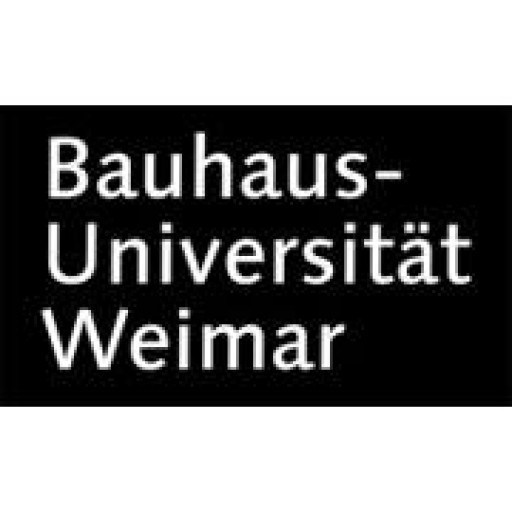Photos of university / #kieluni
The MSc in Environmental and Resource Economics at Kiel University offers a comprehensive and interdisciplinary curriculum designed to prepare students for addressing the pressing environmental and economic challenges facing our world today. This program combines rigorous theoretical training with practical applications, enabling graduates to analyze complex environmental issues from an economic perspective and develop sustainable solutions. The curriculum covers core topics such as environmental economics, resource management, policy analysis, ecological economics, and the economics of climate change. Students will also explore related fields like natural resource economics, environmental law, and economic modeling, providing a well-rounded understanding of the economic instruments and policies used to promote sustainability.
The program emphasizes the importance of empirical research and quantitative methods, equipping students with skills in data analysis, econometrics, and modeling techniques essential for policy evaluation and decision-making. Through a combination of lectures, seminars, case studies, and project work, students gain both theoretical insights and practical experience, including the opportunity to collaborate on research projects and internships. The university’s close ties with international organizations, governmental agencies, and environmental NGOs create valuable networking opportunities, positioning graduates for careers in academia, government, consultancy, or international institutions.
Kiel University’s location near the Baltic Sea provides a unique environment for studying marine and coastal resource management, adding further relevance and context to the program. The multicultural and international student body enriches the learning environment, fostering diverse perspectives on global environmental issues. The MSc in Environmental and Resource Economics aims to develop highly qualified professionals capable of designing and implementing effective economic policies for sustainable development. Graduates will be equipped to contribute to policy-making processes, conduct independent research, and address the economic aspects of environmental challenges on a local, national, and global scale.
Educational organisation
The Master's programme is organised in seven parts:- Compulsory Section in Economics (15 ECTS-CP)
- Compulsory Section in Environmental Economics (15 ECTS-CP)
- Compulsory Section in Econometrics (15 ECTS-CP)
- Optional Section in Economics (15 ECTS-CP)
- Optional Section in Environmental Economics (10 ECTS-CP)
- Minor Subject (20 ECTS-CP)
- Master's thesis (30 ECTS-CP)
Forms of assessment
Written exams, oral exams, term papers, presentations, Master's thesisCourse objectives
Over the course of the Environmental and Resource Economics Master of Science programme, taught in English, you will become qualified to accept responsibility for tasks in companies, NGOs, or in senior civil service, to perform a freelance profession, and to conduct autonomous scientific work.Language requirements
Proof of English language skills by either C1/CEFR, TOEFL ITP (paper-based test): 550 points or an equivalent test or Bachelor's degree in a programme in which the language of instruction was EnglishAcademic requirements
Applicants are expected to hold a Bachelor's degree or a comparable university degree (minimum grade 2.5) with a regular period of university education of three years or more and 180 ECTS credit points or more.35 out of 180 credit points of the Bachelor's degree have to be attained from courses on principles of economics (i.e. courses on microeconomic theory and courses on macroeconomic theory) with no overlapping in substance and from courses on quantitative methods with no overlapping in substance.
At least 10 out of 180 total credit points of the Bachelor's degree have to be composed of credit points from courses on microeconomic theory.
At least 5 out of 180 total credit points of the Bachelor's degree have to be composed of credit points from courses on macroeconomic theory.
At least 10 out of 180 total credit points of the Bachelor's degree have to be composed of credit points from courses on quantitative methods, that is from courses on analysis, algebra, statistics, and econometrics.
Applicants with a minimum overall grade of 3.0 may also be eligible for the Master in Economics if the weighted average grade (weighted with the credit points) from courses in economics and on quantitative methods is at least 2.5.
Enrolment fees
An enrolment fee ("Einschreibegebühr") currently amounting to 55 EUR is charged for the first enrolment at Kiel University.A semester contribution ("Semesterbeitrag") currently amounting to approx. 120 EUR must be paid each semester. This covers free public transport ("Semesterticket"), reduced lunch prices, and other financial benefits for students.
For the latest information, see: www.studium.uni-kiel.de/de/studium-organisieren/studienangelegenheiten/rueckmeldung
Costs of living
Monthly expenses in Kiel (e.g., for housing, food) range between 700-800 EUR, depending on individual needs.Arrival support
The International Center at Kiel University offers a wide range of services and will support international students with any questions related to a successful arrival in Kiel.See: http://www.international.uni-kiel.de/en
Services and support for international students
The International Center at Kiel University offers a wide range of services.See: http://www.international.uni-kiel.de/en
Accommodation
Accommodation in Kiel is available through the office for student affairs ("Studentenwerk Schleswig-Holstein") or on the private market. Looking for a place to stay in a foreign country is not always easy. The office for student affairs supports students seeking accommodation at reasonable prices and is continually improving the quality and standard of the residence halls.In general, the chances of obtaining a room in a residence hall can be improved by submitting an application form before 15 June. The rent depends on the location and standard of the particular residence.
Please note that due to high demands for accommodation in Kiel, the office for student affairs can currently only assign rooms in residence halls to first-semester students (Bachelor's/Master's students). PhD students cannot be assigned rooms.
For information and to contact us, see: http://www.studentenwerk.sh








